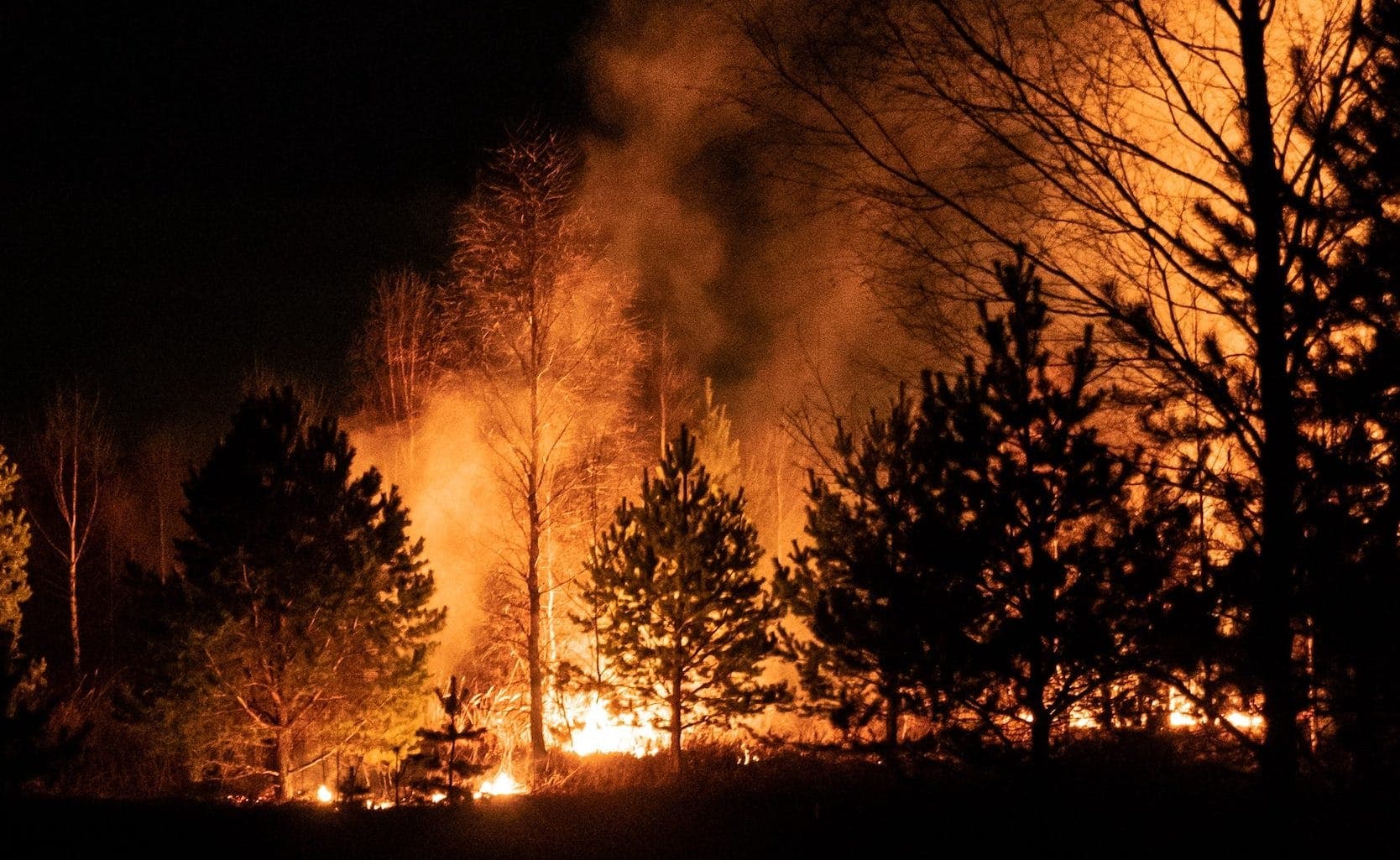Wildfires are becoming increasingly common as a result of climate change, and the smoke can impact air quality hundreds or even thousands of miles away. That’s not great for your lungs, but what about other areas of your health? We’ll take a look at the potential impact of wildfire smoke on sperm and overall fertility.
Takeaways:
- Tiny particles in wildfire smoke can endanger your health.
- Some research has found that wildfire smoke negatively affects sperm in rats. The smoke may also impact birth outcomes.
- Many other studies have indicated that exposure to particles in air pollution decreases fertility and sperm quality. These can likely be extrapolated to wildfire smoke.
- You can reduce your exposure to smoke by staying inside, checking air quality reports, and wearing a respirator outdoors on smoky days.
Why is wildfire smoke a health concern?
Wildfire smoke contains gases along with significant amounts of particulate matter (PM) from burning wood and other organic substances. These particles are different in size and makeup. Larger particles tend to only cause eye and throat irritation, but particles that are 10 micrometers (μm) or smaller can be inhaled into the lungs, more severely impacting your health.
PM2.5, or particles with a diameter of 2.5 μm or less, poses particular concern because it can pass more deeply into your lungs and even into your bloodstream. These particles make up around 90% of the particle mass in wildfire smoke.
How does wildfire smoke affect sperm and fertility?
Few studies directly examine wildfire smoke’s effect on fertility. However, research overall suggests that it has a negative impact.
A recent study in mice found that being exposed to smoke from burning Douglas fir needles for two hours per day over 40 days caused sperm DNA changes. The simulated wildfire smoke led to DNA methylation, a chemical change to DNA which has been linked to abnormal sperm count and motility. The study noted that the impact for human health is still unclear, and more research is needed.
Air quality and male fertility
Other studies, while not looking at wildfire smoke specifically, have found that prolonged exposure to particles in air pollution likely harm fertility and possibly sperm quality. With some recent research indicating that PM2.5 exposure from wildfires may be up to 10 times worse for human health compared to other sources of PM2.5, it’s likely that these outcomes apply to wildfires as well.
A large study in China also indicated an association between PM2.5 exposure and fertility issues. It found that increased PM2.5 concentrations reduced fecundability (the probability of becoming pregnant over one menstrual cycle) while raising the chances of infertility. Specifically, every increase of 10 μg/m3 in average yearly PM2.5 exposure was linked to an 11% reduction in fecundity and a 20% increase in the chance of infertility. (Wildfires can raise PM2.5 levels in the air to over 3 times the safe level of 12 μg/m3.)
Another study of 327 men indicated that exposure to air pollutants including PM10 and PM2.5 was linked to abnormal sperm morphology and lower testosterone levels.
One review found that pollutants can introduce defects in gametes (reproductive cells, like sperm), reducing reproductive ability. This may be a result of particulate matter causing excess reactive oxygen species production, leading to oxidative stress that may damage sperm DNA and reduce sperm mobility. Oxidative stress may also affect fertility by altering cell DNA and possibly decreasing ovarian functions.
Research shows that PM2.5 can carry polycyclic aromatic hydrocarbons (PAH), compounds known as endocrine disruptors that may impact spermatogenesis and alter sperm. A study from 2010 found that exposure to higher environmental levels of PAH was linked to increased damage in sperm DNA. Forest fires are a known source of PAH.
An analysis from 2018 additionally indicated that air pollution impacts some semen parameters, particularly morphology, DNA fragmentation, and motility. And another review also found that air pollution may lower sperm motility. (However, the differences in study designs made it difficult to draw clear conclusions.)
While air pollution appears to negatively impact fertility, more research is needed to clarify the effect of air particles and pollution on sperm health specifically.
Wildfire smoke’s effect on births
Wildfire smoke may affect not only your ability to conceive, but birth outcomes as well. A study from 2019 found that being exposed to wildfire smoke during the second trimester of pregnancy was linked to increased rates of preterm birth.
In another recent study, male rats were exposed to simulated wildfire smoke for four weeks, then mated either immediately or after two months. Offspring from the group that mated immediately following exposure had higher anxiety levels, lower locomotor and exploratory activity, and reduced spatial memory. However, offspring from rats that mated 60 days after smoke exposure (one spermatogenic cycle for rats) displayed mostly normal behaviors. The study noted that more research is needed to confirm these effects in humans, but this suggests that the oxidative stress of wildfire exposure may impact the health of children conceived or gestating during the exposure.
How else does wildfire smoke affect your body?
Smoke from wildfires is particularly risky for people who are pregnant and those with lung or heart disease. Even in healthy people, it can lead to issues such as:
- burning eyes
- difficulty breathing
- cough
- wheezing
- runny nose
- heart disease
- chronic lung disease
- early death
Exposure to PM2.5, whether through smoke or air pollution in general, may contribute to health conditions including:
- stroke
- asthma
- hypertension
- cancer
What can you do to reduce your risk?
The best thing you can do to minimize health and fertility effects from smoke is to reduce your exposure. If there’s a wildfire nearby or if smoke from a distant fire is reaching your area, avoid outdoor activities. You can also check air quality reports, available in many weather apps and on sites like airnow.gov, to find out the air quality from smoke and air pollution in general.
If you do go outside, wearing a mask can help protect you. However, it should be a well-fitted N95 or P100 mask, since cloth masks, surgical masks, and other face coverings aren’t sufficient to block the tiniest pollution particles that can harm your health.
You can also take steps to protect yourself indoors, where smoke particles can gather. It’s best to keep windows closed, if possible, and to run your air conditioner (as long as it’s not bringing in air from outside). Running an air purifier can help, too.
If you’re concerned about the impact of wildfire smoke or other air pollution on your fertility, you can check your sperm health with at-home sperm testing. To safeguard your fertility for the future, you may also consider freezing your sperm.



